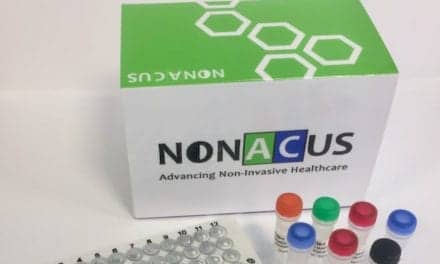Medical Database, Irvine, Calif, a provider of medical and laboratory test information, says a new study shows that its laboratory decision system, LDS, is effective in helping clinicians select and order appropriate laboratory tests. The study results confirm a significant reduction in the number of unnecessary tests ordered by clinicians, thereby reducing wasteful healthcare spending while improving patient outcomes.1
Until recently, there has been no centralized, reliable resource for providers to reference when ordering from the growing selection of laboratory tests. The increase in available molecular genetic testing has only compounded the difficulty in selecting the most medically appropriate diagnostic test. As one CDC study showed, nearly 15% of primary care physicians experienced uncertainty in ordering the proper test. The same study noted that more than 75% of providers would welcome a reference resource to help reduce uncertainty.1
Laboratory diagnostics have become the largest single clinical activity in the United States, with 4 billion to 5 billion tests performed each year, according to Medical Database. However, no solution has been proven to make a positive impact on test utilization and medical necessity.
To address these challenges, Medical Database developed its LDS management software for ordering and utilizing laboratory tests. This intuitive new platform employs evidence-based guidelines and industry best practices to assist healthcare providers in selecting and ordering the most appropriate laboratory tests.
With LDS, clinicians are able to select the most appropriate test using test procedure, CPT code, disease, or a diagnostic (ICD 10) code. All orders placed using the LDS platform automatically include the appropriate ICD 10 code to meet medical necessity for reimbursement. This innovative LDS feature allows labs and hospitals to streamline claims submission and verification. LDS utilizes a proprietary ranking system to rate potential tests for any given disease and assigns a numerical and color-coded score, based on clinical relevance, medical necessity, and testing indication.
In the study, LDS was used to analyze claims or orders from a reference laboratory and a small insurance provider managing self-pay organizations. In both cases the LDS proprietary ranking system easily identified tests or orders that did not meet medical necessity or Medicare local or national coverage policies at 50% and 20%, respectively. Further, LDS would have made recommendations for the correct ICD 10 codes for every test order received with an incorrect code. In addition, significant improvement would have resulted had LDS been employed as a testing selection and ordering system by automatically assigning the correct ICD 10 or diagnostic code to each order. The study concluded that LDS could improve laboratory test orders by more than 99%.2
“The study makes the case that there is an immediate need for a laboratory decision support system to aid providers in selecting the right test for each disease or condition while assigning the correct ICD 10 code to meet medical necessity,” says Safedin Sajo Beqaj, PhD, CEO of Medical Database. “Our vision for LDS is to provide benefits throughout the laboratory test vertical by assisting providers in making appropriate test selection, helping laboratories with proper submission for reimbursement, and streamlining claim verification for payers. All of which combined will serve to make the laboratory industry and the overall healthcare system more efficient and cost-effective.”
For more information, visit Medical Database.
References
- Hickner J, Thompson PJ, Wilkinson T, et al. Primary care physicians’ challenges in ordering clinical laboratory tests and interpreting results. J Am Board Fam Med. 2014;27(2):268–274; doi: 10.3122/jabfm.2014.02.130104.
- Leblow L, Hamill T, Beqaj S. Use of laboratory decision system as a test utilization management tool in clinical settings, current and future perspectives. J Clin Lab Med. 2019;4(1): doi: 10.16966/2572-9578.128.






